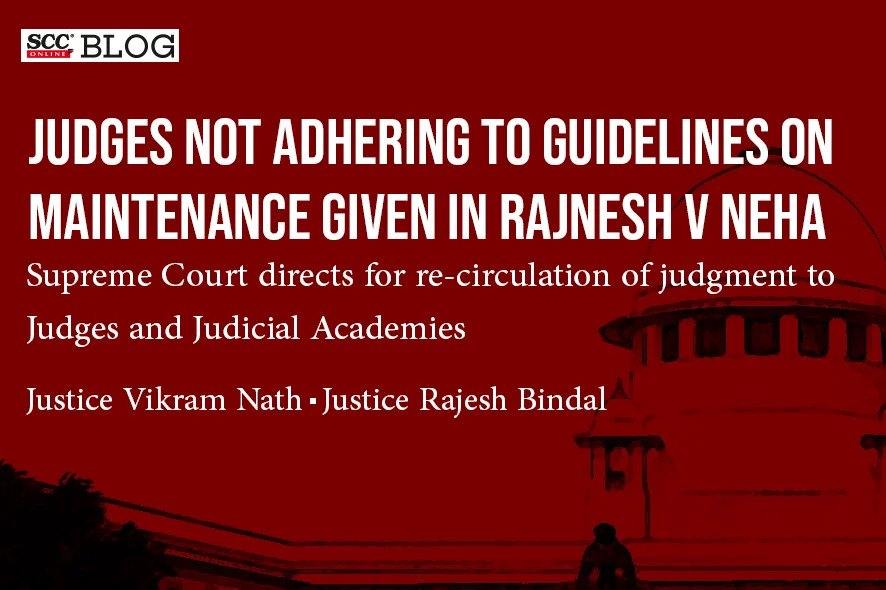Supreme Court: In an appeal filed by a minor daughter, against the order passed by the Madhya Pradesh High Court, wherein the Court modified the maintenance for the minor daughter fixed by Family Court from ₹ 20,000/- per month to ₹ 7,500/- per month, the division bench of Vikram Nath and Rajesh Bindal*, JJ. while setting aside the impugned order, said that the impugned order passed by the High Court is cryptic and is bereft of reasons. Further, it remitted the matter to the High Court to consider it afresh.
After perusing the order passed by the Family Court awarding maintenance of ₹ 20,000/- per month to the minor daughter, the Court said that it is evident that the High Court had considered the material placed before it. However, the High Court in revision recorded that earlier the respondent was doing private work and at present he is financially distressed.
After referring to Rajnesh v. Neha, (2021) 2 SCC 324, the Court said that the terms of maintenance are decided based on pleadings of parties and based on some amount of guess work. It is often seen that both the parties submit scanty material and do not disclose correct details. The tendency of the wife is to exaggerate her needs, whereas the husband tends to conceal his actual income. Thus, this Court laid down the procedure to streamline the grant of maintenance. Guidelines were issued in exercise of powers under Article 136 read with Article 142 of the Constitution of India, prescribing a uniform format of Affidavit of Disclosure of Assets and Liabilities to be filed in maintenance proceedings. Criteria for determining the quantum of maintenance was also laid down.
The Court noted the Guidelines laid down in Rajnesh case (supra) regarding maintenance to minor children. Further, after referring to Neha Tyagi v. Deepak Tyagi, (2022) 3 SCC 86 ,wherein the Court upheld the decree of divorce , and opined that even after the divorce, the husband is not absolved of his liability and responsibility to maintain child till he/she attains the age of majority, the Court said that where the earning of the wife is also good, that factor can always be considered, as joint parenting is always best for upbringing of the child. The basic object is the welfare of the child.
The Bench noted that nothing is evident from the record or even pointed out by the appellant at the time of hearing, that affidavits were filed by both the parties in terms of Rajnesh’s case (supra), which was directed to be communicated to all the High Courts for further circulation to all the Judicial Officers for awareness and implementation. Further, it said that comprehensive guidelines were issued pertaining to overlapping jurisdiction among Courts when concurrent remedies for grant of maintenance are available under various laws. Thus, the litigation which should close at the trial level is taken up to Supreme Court and the parties are forced to litigate.
The Court, while setting aside the impugned order, said that the impugned order passed by the High Court is cryptic and is bereft of reasons. Further, it remitted the matter to the High Court for consideration afresh.
Considering the present case and the other similar cases coming across, that are not adhering to the guidelines given in Rajnesh’s case (supra), the Court directed the Secretary General , Supreme Court to re-circulate the aforesaid judgment not only to all the Judicial Officers through the High Courts concerned but also to the National Judicial Academy and the State Judicial Academies, to be taken note of during the training programmes as well.
[Aditi v. Jitesh Sharma, 2023 SCC OnLine SC 1451, decided on 06-11-2023]
*Judgment Authored by: Justice Rajesh Bindal
Know Thy Judge | Supreme Court of India: Justice Rajesh Bindal







